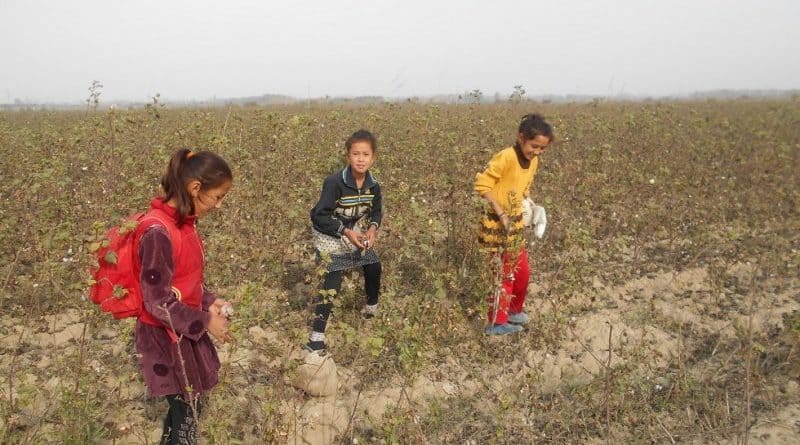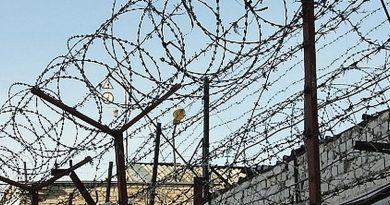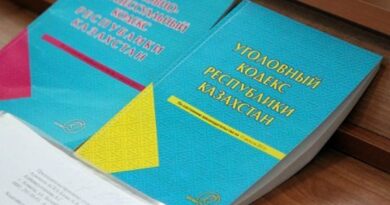Uzbekistan: authorities responded to ACCA publication concerning child labor
Colleagues from Central.media forwarded a letter to the ACCA from the Ministry of Employment and Labor Relations. On June 10, journalists published the material from our portal “Uzbekistan: human rights defenders were beaten and placed under house quarantine”. A week later, the press center of the Ministry prepared an answer, but, for some reason, decided to send it to the editorial office of Central.media.
It turned out that the Ministry of Labor conducted an investigation and prepared an official statement on the results. The text was used for their information by several online publications of the country. Already in the second paragraph, nameless authors tried to distort the reports of human rights activists about children on plantations, noting that one teenager was noticed in the cotton fields. ACCA journalist again contacted the participants of activists’ raid, who confirmed that they had seen 10-15 teens in the fields for several days.
Also, the press service of the Ministry claims that “according to the results of the inspection, there were no cases of forced child labor in Namangan region.” We want to note that ACCA didn’t write about compulsion. It was about using children in the fields, exploiting their labor in the heat and for a small fee. The Ministry of Labor should get acquainted with the evidence of this from human rights defenders. Children quite legally work on weeding cotton and for cultivation of one hectare of the field they receive 200-300 thousand sums (up to $30), although in clusters of Tashkent region, they pay up to $40 per 1 ha. An activist mailing contains an audio recording of the conversation with a girl-day laborer. She said that in the village of Yangiabad (Turakurgan district of Namangan region), the teenagers didn’t receive the earned money. They still have to work to receive the promised money for two hectares of the cultivated field.
In an interview with ACCA journalist, the activists were outraged by the lies of the authorities. “If there were no children, then why did they start pursuing us? The officials obstructed the talks with the workers on the field, and then they made us terrorists during force detention,” the activists said. “By the way, in March this year, the President appointed Zulaykho Makhkamova to the post of head of the administration of Turakurgan region. Previously, she served as First Deputy Women’s Committee of Uzbekistan. The subordinate women of khokim assured the representatives of the State Labor Inspectorate that there were no children in the fields.
Most of the denial of the Ministry of Labor is the mention of a nine-year-old boy who was got in the photo during a cotton raid. The activists just handed him and the mother of four children a package with gifts. Cunning is the assurance of the answer that the law “prohibits the use of labor by persons under the age of eighteen years for manually irrigating cotton and manually harvesting cotton in the agricultural sector. However, persons under the age of eighteen are not prohibited from participating in weeding cotton.” In a dialogue with the government on lifting “cotton” sanctions, the International Labor Organization doesn’t take this into account.
At the same time, the emphasis in the response is on the prohibition of forced labor in national legislation, according to which administrative responsibility has been strengthened, fines ranging from $1100 to $2200 have been provided, and since 2020, the criminal liability has been introduced, which provides for imprisonment, in particular, up to two years.
The head of the Uzbek Human Rights Forum (Germany), Umida Niyazova, responded to the message of the Ministry of Labor and the publication of Uzbek media. “Human rights activists have reported not one but several cases of child labor in weeding cotton,” said the human rights activist. “No one really forced the children to work. They are forced to help their families because of poverty. Weeding is really not included in the list of works prohibited for the children. Probably, labor inspectorates should consider the effect of this type of work on the child’s health and establish an age upper limit for manual weeding of cotton on fields in the sun. The most important question in this story is why the activists were detained and forced to take a coronavirus test? Why wasn’t they informed of the test results after a week, but they were all put under house arrest?”
Earlier, ACCA wrote about how authorities in Namangan region forcibly interrupted monitoring of the use of child labor on cotton plantations. On June 7, the law enforcement officers detained a group of activists in Papsky district with beating. Then they were placed under home quarantine with unreasonable suspicion of coronavirus infection.




